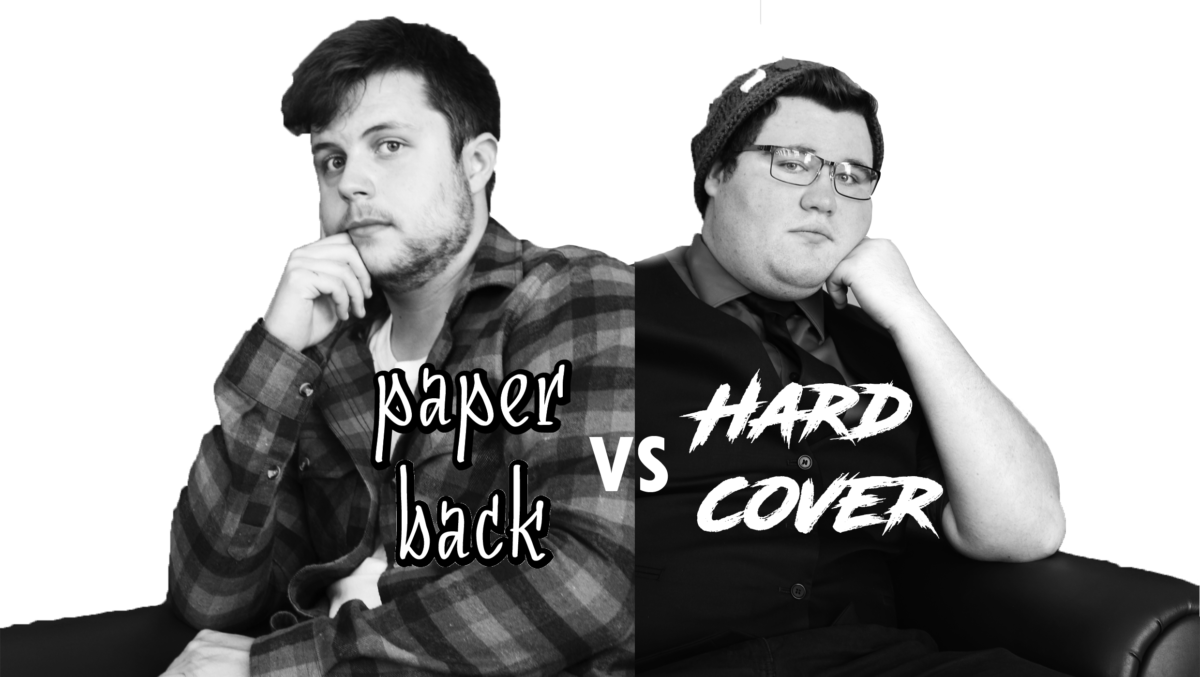

William:
I don’t know about you, but when I read a book, all I need are some words on a page. That’s why I believe paperback (or “the working man’s book” as I like to call it) is the superior form of novel. Hardcovers are better left to the social elitists of the world who can’t enjoy a book unless it has a gilded lid.
There’s no one you can trust more than someone with a collection of worn paperback books. Like the calluses on our hands, the wear of our books marks a lifetime of experience. That’s something the one-per-centers and their hardcovers will never understand.
Hardcover is an impractical format, plain as that. The added weight and ridged spine makes comfortable reading impossible. Paperback’s flexibility means that one book fits all, and your book can be enjoyed without getting two of your servants to hold it, while your others fan you with palm fronds and feed you grapes.
Of course, most hardcover owners likely never run into these problems since they are only buying these books to have something pretty to put on their shelves. It’s easy to ignore the shortcomings of your purchase when you don’t have to use it and can just stare at its fancy dust jacket (by the way, can we just take a minute to question how pretentious you have to be to buy clothes for your books?). Us paperback readers don’t need those protective sleeves since we actually shake the dust off of our books now and then.
I hope you will see how pointless it is to pay more for an inferior form of novel, and that one day the paperback will receive the credit it deserves as the perfect balance between form and function.
Troy:
Hardcovers are for the people who enjoy the finer things in life. Yes, they are more expensive, but what you get from them is an assurance they will not rip, nor tear, anytime soon. The cover’s texture can range from smooth, to bumpy and, my personal favorite, rigid leather.
How can you trust someone that doesn’t care enough about their books to make sure they stay safe? The different types of hardcovers have different shows of wear, while not deteriorating the quality of the novel. Like a fine-aged scotch, a hardcover develops more body with age.
The hardcover stabilizes your hands while you read. A paperback merely flops about and ruins the harmony you try to create for yourself while diving into your story. When you see books being portrayed in the media, do you see the actors holding a mere paperback? No, they are holding an elegant hardcover.
Think about your family. A paperback is floppy, it’s messy and it looks atrocious. It’s an embarrassment to own. What if someone breaks into your home? You need something to defend yourself with. If you use a paperback the intruder will simply laugh while they take your possessions. A hardcover is blunt and heavy. It can protect you.
I will not sit here and try to sway those who can’t appreciate true beauty and class. They cannot be swayed by fact. They will miss out on passing books down to family members in their later years, they will miss how superior it feels sitting in a study while reading from a hardcover and sipping brandy and they will miss their precious paperbacks that have fallen victim to a little rain or senseless storage.
I hope my points show the true reality of what people get with paperbacks and how frugal their efforts are in trying to make them seem better than hardcovers. My case rests here.
